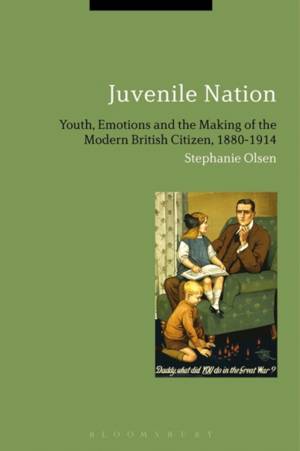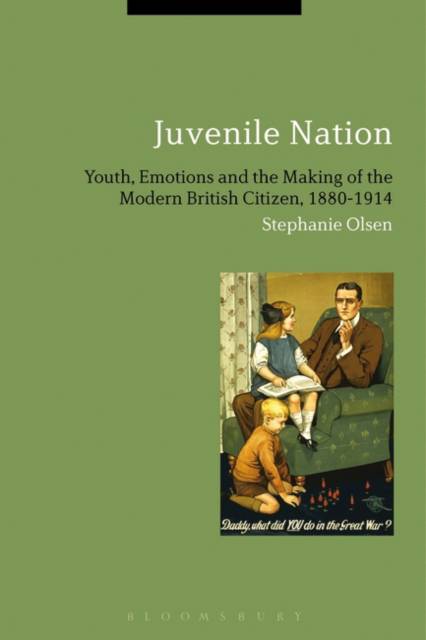
- Afhalen na 1 uur in een winkel met voorraad
- Gratis thuislevering in België vanaf € 30
- Ruim aanbod met 7 miljoen producten
- Afhalen na 1 uur in een winkel met voorraad
- Gratis thuislevering in België vanaf € 30
- Ruim aanbod met 7 miljoen producten
Juvenile Nation
Youth, Emotions and the Making of the Modern British Citizen, 1880-1914
Stephanie OlsenOmschrijving
In the first five months of the Great War, one million men volunteered to fight. Yet by the end of 1915, the British government realized that conscription would be required. Why did so many enlist, and conversely, why so few? Focusing on analyses of widely felt emotions related to moral and domestic duty, Juvenile Nation broaches these questions in new ways.
Juvenile Nation examines how religious and secular youth groups, the juvenile periodical press, and a burgeoning new group of child psychologists, social workers and other 'experts' affected society's perception of a new problem character, the 'adolescent'. By what means should this character be turned into a 'fit' citizen? Considering qualities such as loyalty, character, temperance, manliness, fatherhood, and piety, Stephanie Olsen discusses the idea of an 'informal education', focused on building character through emotional control, and how this education was seen as key to shaping the future citizenry of Britain and the Empire.
Specificaties
Betrokkenen
- Auteur(s):
- Uitgeverij:
Inhoud
- Aantal bladzijden:
- 256
- Taal:
- Engels
Eigenschappen
- Productcode (EAN):
- 9781780936956
- Verschijningsdatum:
- 13/03/2014
- Uitvoering:
- Hardcover
- Formaat:
- Genaaid
- Afmetingen:
- 157 mm x 236 mm
- Gewicht:
- 476 g

Alleen bij Standaard Boekhandel
Beoordelingen
We publiceren alleen reviews die voldoen aan de voorwaarden voor reviews. Bekijk onze voorwaarden voor reviews.







